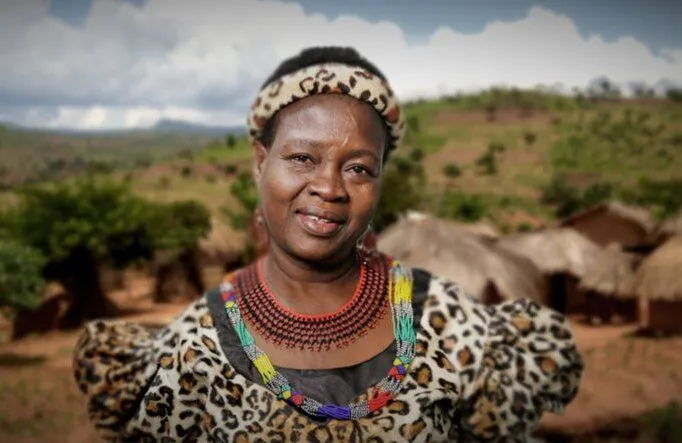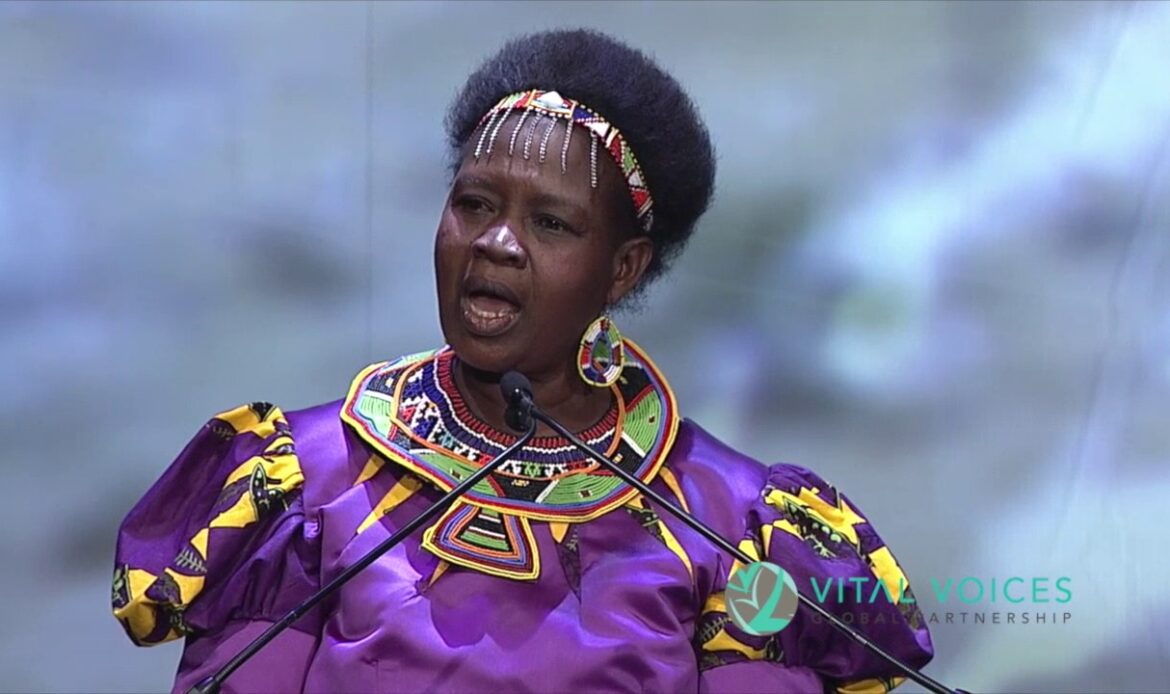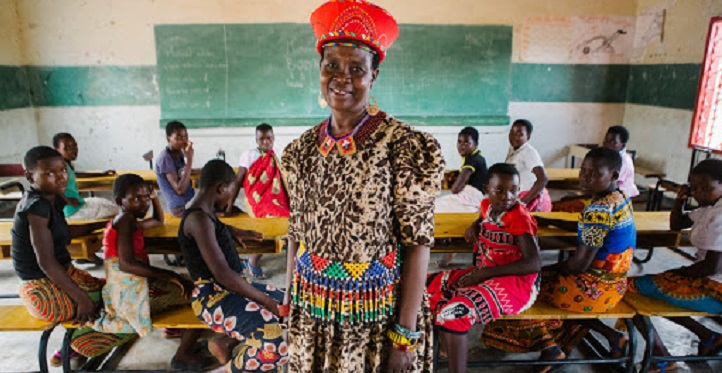
Theresa Kachindamoto didn’t plan on becoming a trailblazer. As the youngest of twelve siblings, she was content with her life as a secretary in Zomba. But destiny had other plans. Summoned back to Monkey Bay, she was appointed Senior Chief of Dedza District, a role that would catapult her into the fight against child marriage and for the education of Malawi’s children.
Kachindamoto’s story is a testament to the power of leadership, determination, and an unwavering belief in the transformative power of education.
A Background Steeped in Tradition
Theresa Kachindamoto, born around 1959, comes from a lineage of traditional rulers in the Dedza District near Lake Malawi. Despite her royal heritage, she spent 27 years working as a secretary, living a relatively ordinary life. In 2003, she was chosen to become the Inkosi of Dedza District, overseeing more than 900,000 people. This unexpected turn of events set the stage for her transformative leadership.
Championing Child Marriage Prevention
Read: Yewande Akinola: A Pioneer in Design Engineering

Malawi, one of the poorest countries globally, has a staggering child marriage rate. A United Nations survey in 2012 revealed that more than half of Malawian girls were married before turning 18. These early marriages, often driven by economic hardship and entrenched cultural practices, rob young girls of their childhood and education.
When Kachindamoto assumed her role as chief, she was appalled by the prevalence of child marriages in her district. Determined to make a change, she took bold steps to abolish this practice. She gathered 50 sub-chiefs and mandated the end of early marriages, even annulling existing unions. She fired sub-chiefs who failed to comply, reinstating them only when they proved they had annulled child marriages.
Her efforts bore fruit. By 2019, she had annulled over 3,500 child marriages. Kachindamoto’s commitment to education was clear: she wanted every child, boy or girl, to complete their schooling. “No child should be found loitering at home, gardening, or doing any household chores during school time,” she declared. Her actions have earned her international recognition and admiration.
Building a Coalition for Change
Kachindamoto’s fight against child marriage is not just a legal battle but a cultural one. She collaborates with mothers, teachers, village development committees, religious leaders, and NGOs to change community norms. Despite facing resistance, particularly from parents who see marriage as a financial benefit due to dowries, she remains steadfast. Her door-to-door campaigns and coalition-building efforts have been pivotal in shifting mindsets.
Her innovative approach includes establishing “secret mothers and fathers,” community members who monitor families to ensure girls stay in school. This grassroots strategy has been crucial in sustaining her initiatives and ensuring compliance with new laws.
Education as a Catalyst for Empowerment

Kachindamoto firmly believes in the power of education to transform lives. “If girls are educated, they can be and have whatever they want,” she asserts. Her work underscores the importance of education in achieving gender equality and economic independence. By keeping girls in school, she is preventing early marriages and empowering the next generation of women to break the cycle of poverty and contribute to their communities.
Overcoming Challenges
Kachindamoto’s journey has not been without obstacles. She has faced death threats and harassment, but these have not deterred her. Her resilience is a beacon of hope and strength for many. “The law is the law,” she says firmly, showing her commitment to justice and the well-being of her people.
Read: Kehinde Bankole Joins “Anna Hibiscus’ Song” Cast for Exciting UK Tour
A Legacy of Change
Theresa Kachindamoto’s work is far from over, but her impact is already profound. She is transforming Malawi, one annulled child marriage at a time. Her vision extends beyond her district as UN Women and UNICEF look to replicate her best practices in other regions. She dreams of a Malawi where every child, regardless of gender, can complete their education and pursue their dreams.
Theresa Kachindamoto’s leadership exemplifies the power of one person to inspire significant social change. Her relentless pursuit of education and justice for all children in Malawi is a testament to her dedication and courage. Kachindamoto is not just a chief; she is a warrior fighting for the future of her people. Her story reminds us that true leadership is about serving others and standing firm in the face of adversity.
She is paving the way for a brighter, more equitable future for Malawi by advocating for education and abolishing harmful cultural practices. Her legacy will undoubtedly inspire future generations to continue the fight for justice and equality.
